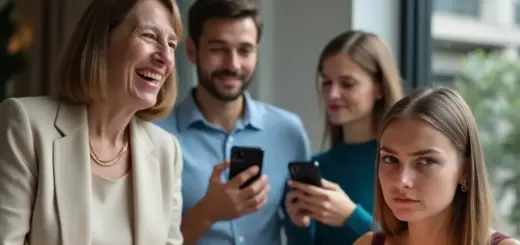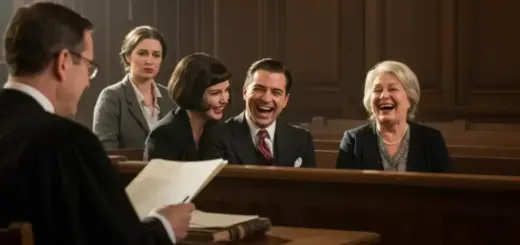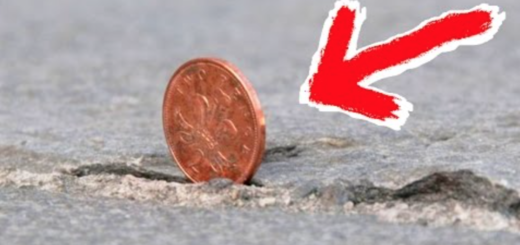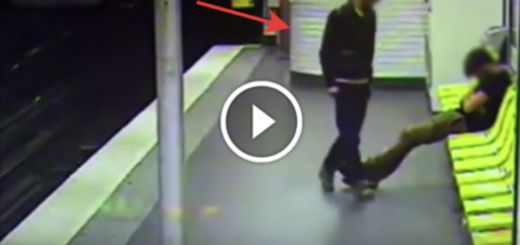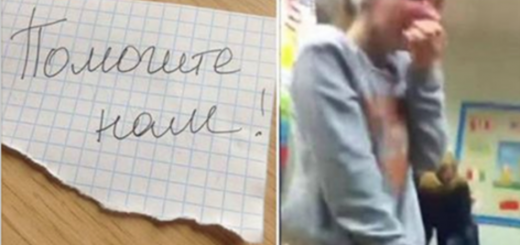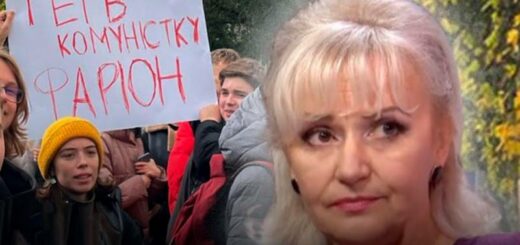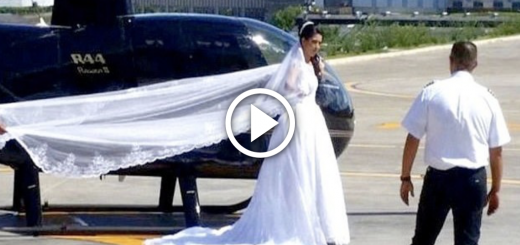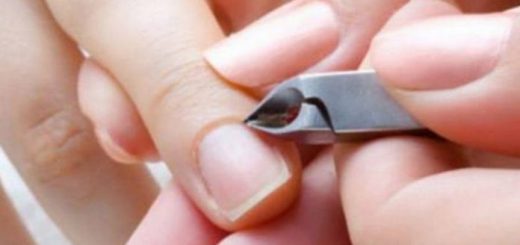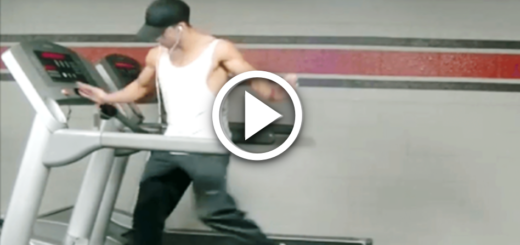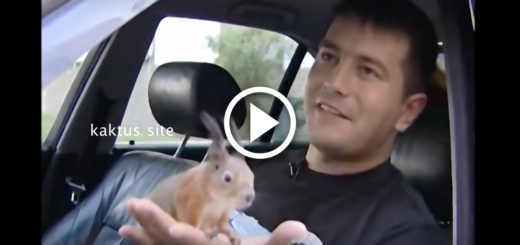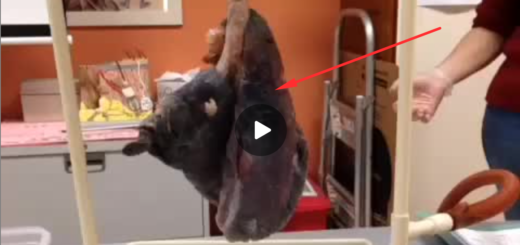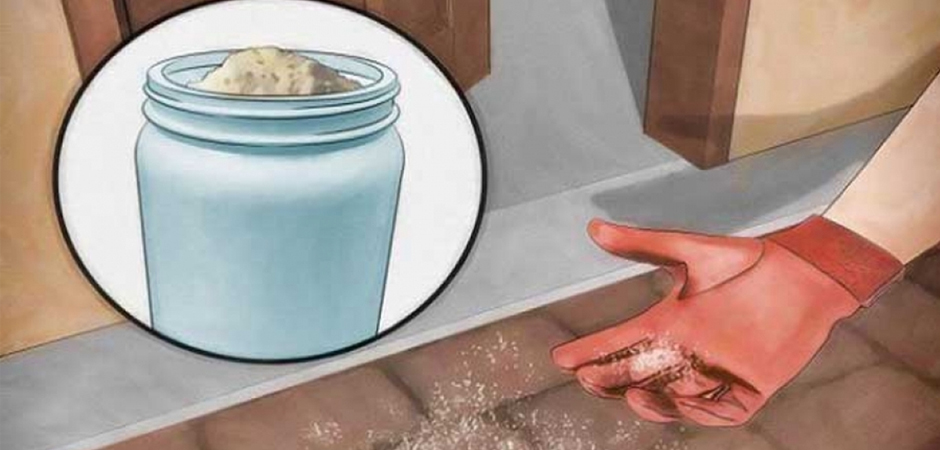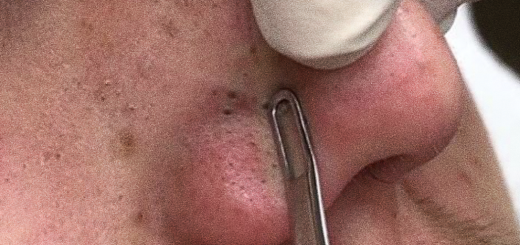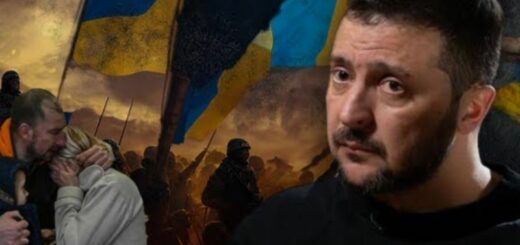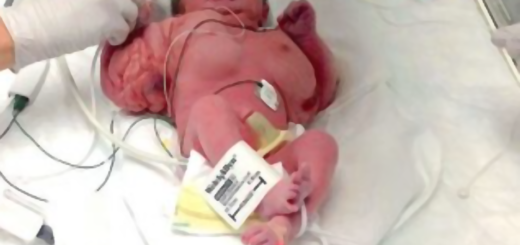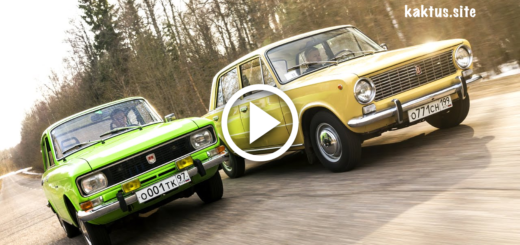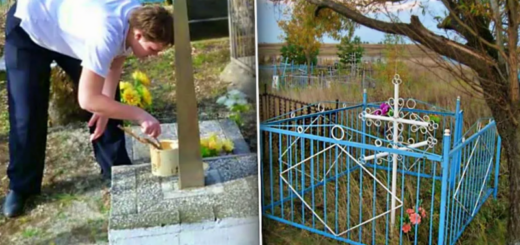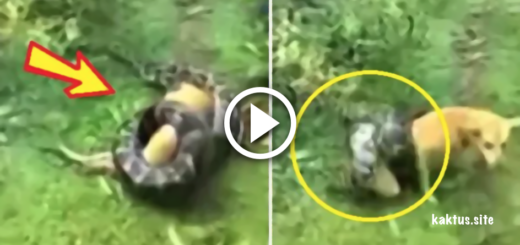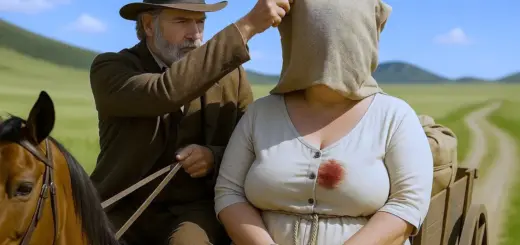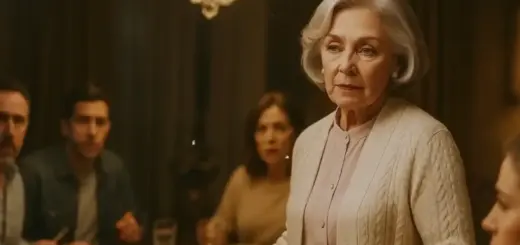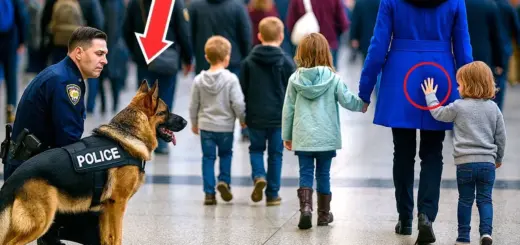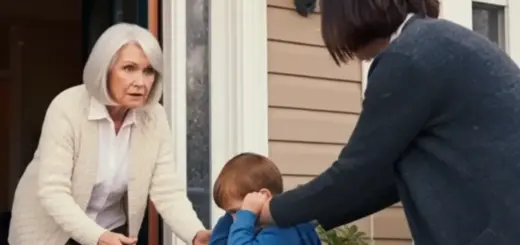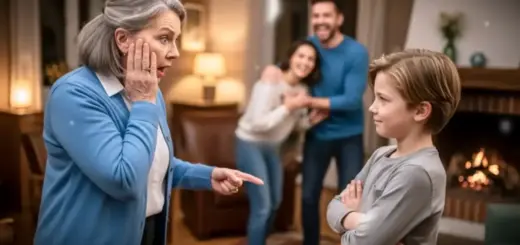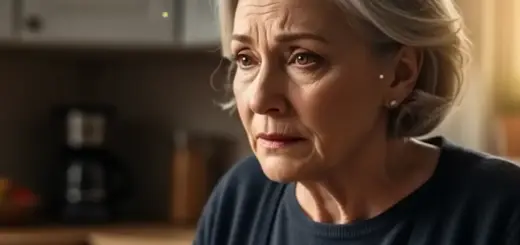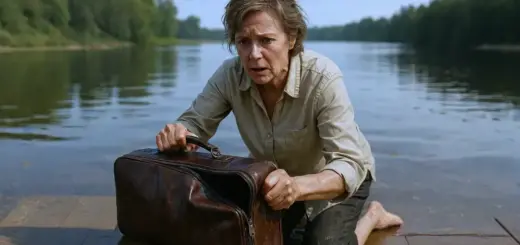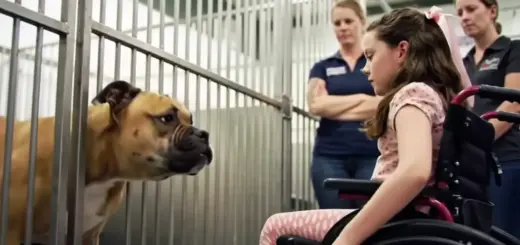When the stew finally simmered, the smell filled the cabin—onions, carrots, salt, and something warm she hadn’t smelled in months. Home. She stirred the pot, biting her lip. He bought me, she thought, and yet he hasn’t demanded a thing.
Elias came over quietly, standing beside her. He glanced at the pot and nodded once. «Smells like something a man could live for,» he said, his voice low.
Mara smiled faintly. «Or just something to keep him alive.»
He gave a soft grunt that might have been a laugh. When they sat down to eat, she noticed he bowed his head for a brief moment before lifting his spoon. She followed, whispering a prayer she hadn’t said aloud since her mother’s passing.
They ate in silence, but it wasn’t the heavy kind. It was the kind that felt like a quilt—rough, warm, and somehow safe.
After dinner, Elias stood and went to the door, opening it a crack. The wind clawed at his coat.
«Storm’s building worse than I thought,» he said. «You’ll be snowed in a few days, maybe a week.»
«You’ll be, too,» Mara said softly.
He looked back at her then, the corners of his mouth twitching upward. «Guess we’ll both have to make the best of it.»
That night he made a bed for her near the fire, taking his blanket to the far corner beside the door. «I’ll sleep light,» he told her. «If you hear anything—wind, wolves, whatever—don’t be afraid to wake me.»
But Mara didn’t hear wolves. She heard the slow, steady rhythm of Elias’s breathing across the room, and somehow it made her feel less alone.
The next morning the storm had buried the world in white. The door was frozen shut, so Elias used his shoulder to push it open, a blast of cold air filling the cabin. Mara gasped. The trees were heavy with snow, their branches bent low, the world silent and endless.
«Ever seen snow like this?» he asked, brushing ice from his beard.
«Not like this,» she whispered. «Back home it never stayed long. Here it feels like it owns the land.»
He nodded. «It does. You don’t fight the mountain; you learn to live with it.»
She studied him quietly, how he moved through the morning with purpose. He split wood, checked the traps near the tree-line, and came back with a rabbit and a small sack of cornmeal. His hands were rough, his voice few, but everything he did had care behind it.
While he worked, Mara cleaned the table and made bread from the little flour she found in his tin. The dough stuck to her fingers, but she hummed softly, a tune her mother used to sing while baking.
When Elias came back inside, the smell of warm bread met him at the door. He stopped, surprised. «You baked?»
She smiled shyly. «I hope you don’t mind. I thought it’d be nice to have something fresh.»
He took off his gloves, walked closer, and looked at the small loaf cooling on the board.
«Mind?» his voice softened. «Feels like a blessing.»
That word, blessing, lingered in the air longer than the smell of bread. As the days passed, the rhythm of their life settled into something steady. Mara cooked, mended, and kept the fire going. Elias hunted, chopped wood, and told her about life in the mountains: how the storms could shift without warning, how silence could be friend or enemy, how the river thawed last each spring.
Sometimes he’d talk about his son, Micah. «Six years old,» he said one night, sitting by the fire with a cup of coffee in his hands. «His Ma died two winters back. Fever took her fast.»
After that, he stopped talking for a long while.
Mara looked at the flickering flames, her heart aching. «Does he look like her?»
Elias smiled faintly. «Too much. Every time he laughs, I see her again. Makes it hard, but good.»
There was silence then, comfortable, thoughtful.
Mara hesitated before saying, «He’s lucky, you know, to have a father who still sees the good in things.»
Elias looked up, his gaze steady. «And you? You see any good left in your story, Mara Lawn?»
She swallowed hard. «I’m not sure. The good seems to come and go like light through clouds.»
He nodded, thoughtful. «Maybe it’s still there. Maybe it’s just hiding.»
By the fifth day, the storm had eased. The sun shone pale over the snowfields, turning the frozen world into a sea of glass. Elias saddled his horse, ready to ride into town to check on Micah.
«I’ll be back by nightfall,» he told her. «There’s jerky, tea, and flour if you need anything. Keep the fire high.»
She nodded, though her chest felt tight. It was strange how quickly she’d grown used to his presence, his quiet voice, his steady hands.
He paused at the door, watching her for a moment. «You did good here, Mara,» he said softly. «You made this place feel alive again.»
Before she could answer, he was gone, his horse’s hooves crunching through the snow until only silence remained.
Mara spent the day cleaning the cabin, humming again, though the tune trembled now. She found an old book on the shelf, the cover worn, the pages soft. She read until the light faded, her eyes catching on a pressed flower between the pages, small, yellow, fragile.
When she heard hooves that evening, she jumped up, heart pounding. The door opened. Elias stepped inside, snow dusting his shoulders, a small boy clinging to his coat.
«This here’s Micah,» Elias said softly.
The boy peeked out from behind his father, pale and thin, his eyes wary.
Mara knelt slowly, offering a gentle smile. «Hello, Micah. I’m Mara.»
The boy didn’t speak, but after a moment he reached out and touched her hand, a small, quiet gesture of trust.
And Elias, he just stood there watching them, his eyes glimmering with something deeper than relief. For the first time in a long time, his home didn’t just have walls and warmth; it had laughter waiting to be born. The woman who’d come into his life wearing a sack on her head had brought it there.
The mountain had begun to thaw by the third week. The ice on the eaves dripped in steady rhythm, and the river below Elias’s cabin had started murmuring again, whispering to the earth that spring was near. For Mara, every morning had become a ritual of quiet peace: fire first, then breakfast, then helping little Micah with small tasks.
The boy had taken to following her like a shadow, though he rarely spoke. He’d point at things, tug on her sleeve, and sometimes, when he thought she wasn’t looking, he smiled. Elias noticed.
One morning he leaned against the doorframe while she showed Micah how to knead dough, the child’s small hands pressed into the flour, leaving uneven shapes.
Mara guided him gently, her laughter soft, like wind through pine needles. «Not too hard, sweetheart,» she said. «Let it breathe.»
Micah looked up at her, then at Elias. Something flickered in his expression, a question or maybe the start of trust.
When Mara turned, she found Elias watching her, his eyes unreadable. «What?» she asked, brushing her floury hands on her apron.
He shook his head slightly. «It’s been a long time since I’ve heard laughter in this house.»
Mara smiled faintly, but her eyes lowered. «Maybe your home was just waiting for someone to remember how.»
Elias didn’t answer right away. He crossed the room, set a hand on Micah’s shoulder, and said quietly, «Maybe you’re right.»
As the snow melted, the trails reopened. Elias began traveling into town once every week for supplies, and sometimes Mara joined him. The first time she stepped back into civilization since being sold, she felt every stare like a stone against her skin.

